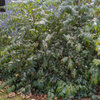Invading Earthworms
york_rose
17 years ago
Related Stories

GARDENING GUIDESGet the Dirt on Your Garden’s Soil
Understand how your soil supports your plants so you can ensure your garden’s success
Full Story
GARDENING GUIDESGarden Myths to Debunk as You Dig This Fall and Rest Over Winter
Termites hate wood mulch, don’t amend soil for trees, avoid gravel in planters — and more nuggets of garden wisdom
Full Story
EARTH DAY5 Ideas for a More Earth-Friendly Garden
Consider increasing the size of garden beds, filtering rainwater and using plants to reduce energy use
Full StoryMore Discussions







hoorayfororganic
claireplymouth z6b coastal MA
Related Professionals
Prairie Ridge Landscape Architects & Landscape Designers · Winder Landscape Architects & Landscape Designers · Chesapeake Ranch Estates Landscape Contractors · Haverhill Landscape Contractors · The Villages Landscape Contractors · Welby Landscape Contractors · West Allis Landscape Contractors · Bellingham Decks, Patios & Outdoor Enclosures · Centreville Decks, Patios & Outdoor Enclosures · Del Aire Decks, Patios & Outdoor Enclosures · Fishers Decks, Patios & Outdoor Enclosures · High Point Decks, Patios & Outdoor Enclosures · Pittsburgh Decks, Patios & Outdoor Enclosures · Reading Decks, Patios & Outdoor Enclosures · Royal Oak Decks, Patios & Outdoor Enclosuresyork_roseOriginal Author
claireplymouth z6b coastal MA
diggingthedirt
claireplymouth z6b coastal MA
claireplymouth z6b coastal MA
york_roseOriginal Author